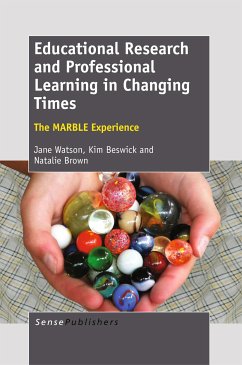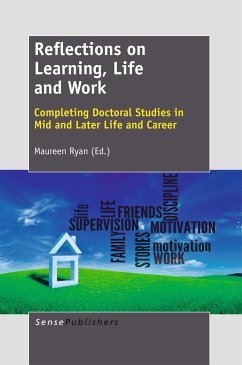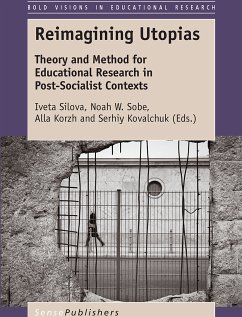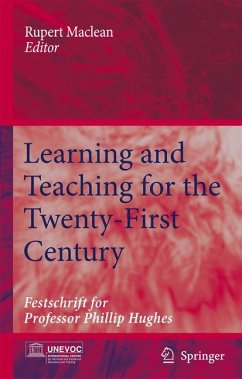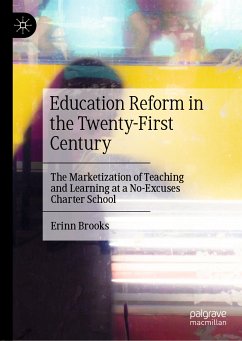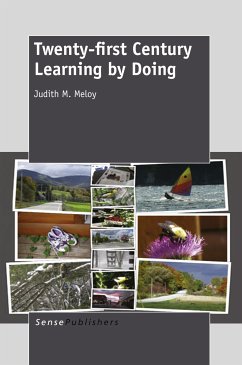
Twenty-first Century Learning by Doing (eBook, PDF)

PAYBACK Punkte
14 °P sammeln!
Qualitative research has emerged from a twentieth century 'paradigm war' at the doctoral level to become a significant and real opportunity for undergraduate, masters', and doctoral students at colleges and universities around the world. ESL researchers, first generation college students, and individuals identifying themselves as "quants" are discovering the capacity of their own thinking as they learn about and simultaneously undertake qualitative research for their theses. This book is the result of a general query; it is composed almost entirely of the thoughts, concerns, and wisdom of sixt...
Qualitative research has emerged from a twentieth century 'paradigm war' at the doctoral level to become a significant and real opportunity for undergraduate, masters', and doctoral students at colleges and universities around the world. ESL researchers, first generation college students, and individuals identifying themselves as "quants" are discovering the capacity of their own thinking as they learn about and simultaneously undertake qualitative research for their theses. This book is the result of a general query; it is composed almost entirely of the thoughts, concerns, and wisdom of sixty-nine current and recently defended doctoral students across the process of learning about and choosing to do qualitative research for the dissertation. The correspondents' thinking serves as a thoughtful companion to the process of learning by doing. This book is not a "how to" book. Rather it is a series of candid, thoughtful and insightful reflections re-presented in a variety of formats, e.g. whole letters, "interviews", etc. This is also not a book to read from beginning to end; readers can begin anywhere - with a particular correspondent, who is introduced at the beginning, or with a particular topic, using the tables of content or subject indices. Finally, this book is not a textbook providing readers with "correct answers" and "the" way to do things, although much of what the correspondents have to offer will keep learners new to qualitative research from having to 'reinvent the wheel.' Twenty-first Century Learning by Doing evidences the vulnerability and power of both the human heart and intellect as each grapples with complexities and ambiguities that epitomize the work learning and doing qualitative research is.
Dieser Download kann aus rechtlichen Gründen nur mit Rechnungsadresse in A, B, BG, CY, CZ, D, DK, EW, E, FIN, F, GR, HR, H, IRL, I, LT, L, LR, M, NL, PL, P, R, S, SLO, SK ausgeliefert werden.



